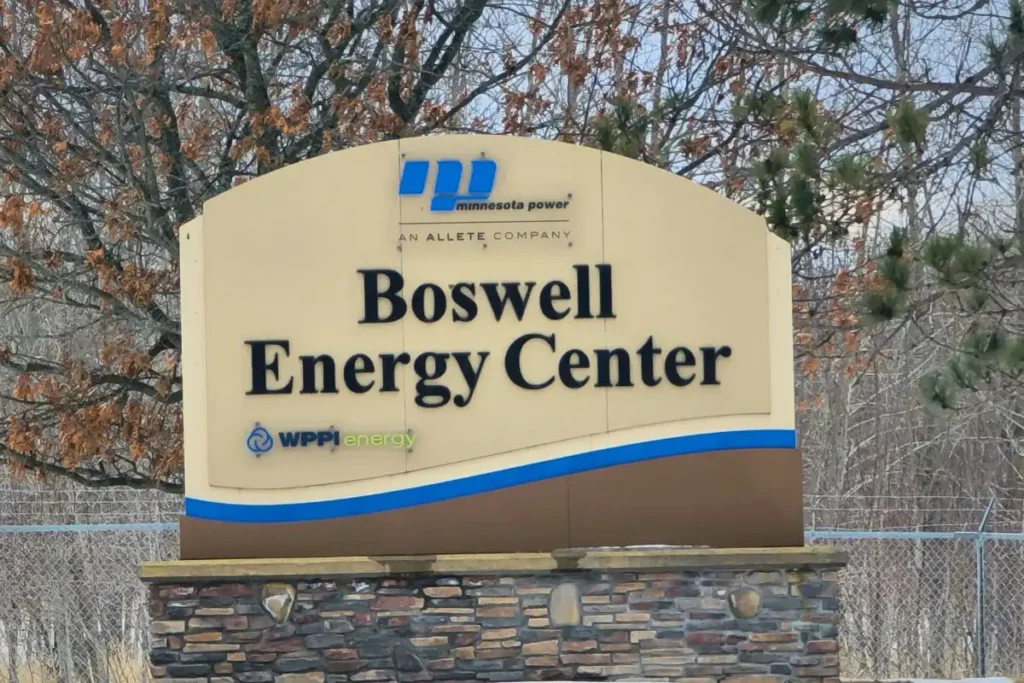Today, Sierra Club, CURE, and the Minnesota Center for Environmental Advocacy (MCEA) sent a letter to Minnesota Power demanding that the company address problems associated with storage and management of coal ash wastewater at the coal-fired Boswell Energy Center, which violate the Resource Conservation and Recovery Act (RCRA) and associated federal regulations. Under a federal rule governing management of coal ash wastewater, known as “coal combustion residuals,” Minnesota Power was required to close one of the coal ash wastewater ponds at the Boswell plant by June 2025, but the Company says it plans to delay that closure by another ten years, in violation of the rule.
After a pipe at the Boswell plant leaked 5.5 million gallons of coal ash contaminated wastewater into Blackwater Lake and the Mississippi River in July 2024, federal rules also required that Minnesota Power prepare and make public a plan to fully clean up the spill, but a year later the Company still has not disclosed that plan. The letter demands that Minnesota Power comply with the federal rules by timely closing the coal ash storage ponds and releasing its plan to clean up the coal ash spill.
“Minnesota Power is seeking to keep using one of the Boswell coal ash wastewater ponds for another ten years, even as it has failed to make public its plans to clean up environmental harm from last summer’s coal ash spill. Allowing Minnesota Power to keep dumping coal ash wastewater at Boswell for another decade will continue to put our water and communities at risk. Minnesota Power must make public the steps it has taken to clean up last year’s catastrophic spill, and it must plan to stop dumping coal ash at Boswell as required by federal rules, for the sake of Minnesotans’ safety, health and our future,” said Patrick Woolsey, Sierra Club Environmental Law Program.
The letter details Minnesota Power’s violations, including its failure to publicly disclose a completed assessment of corrective measures for the spill, amongst others.
“Folks in Cohasset and Itasca County have a right to a clean and healthy environment, and Minnesota Power’s failure to abide by federal law is a clear violation of the public’s trust. Tribal members in the area have retained their rights to hunt, fish, and gather here — these rights are disrespected if the area is contaminated and can’t support these activities,” said Hudson Kingston, Legal Director at CURE. “We need Minnesota Power to clean up this toxic ash and prove that they can shut down Boswell’s legacy pollution without making matters worse.”
“The fact that Minnesota Power stores the ash from burning coal in ponds adjacent to the Mississippi River, is yet another reason why MCEA has been working tirelessly to shut the Boswell plant. Burning coal is incompatible with the future we are fighting for,” said Evan Mulholland, Attorney at MCEA.
Contamination of water sources like the Mississippi River with coal ash pollution poses risks to public health. Coal ash can contain contaminants like mercury, lead, and arsenic, and human exposure to these pollutants can pose serious health threats like increased risk of cancer and brain damage. The Minnesota Pollution Control Agency found high sulfate levels at Blackwater Lake due to the coal-ash contaminated water, polluting wild rice beds important to the Leech Lake Band of Ojibwe.


